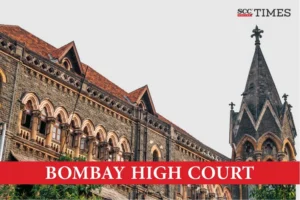Bombay High Court: In a criminal writ petition before the Court filed by a Government Medical Officer, against the sanction order contained under Section 197 of the Code of Criminal Procedure, 1973 (“CrPC”), denying sanction for prosecution of the petitioner’s colleagues for offences punishable under Sections 506 and 509 of the Penal Code, 1860 (“IPC”), and Section 3 of the Scheduled Caste and Scheduled Tribe (Prevention of Atrocities) Act, 1989 (“SC/ST Atrocities Act”), the Division Bench of Mangesh S Patil* Shailesh P Brahme, JJ., partly allowed the petition and upheld the refusal to sanction prosecution under S. 197, CrPC. The Court held that no previous sanction as contemplated under Section 197 CrPC would be necessary for investigating and filing final report for offences under Section 509 IPC and Section 3 of the SC/ST Atrocities Act.
The Court also clarified that a bar contained in Section 197, CrPC cannot be read into the provisions of the Atrocities Act which does not contain any such condition precedent.
Background
The petitioner was a Class-I Medical Officer at the Health and Family Welfare and Training Centre, Aurangabad, had alleged that the Respondents 7,8, and 9 (“Respondents”) were her colleagues, despite being aware that the petitioner belonged to a Scheduled Caste, had humiliated her. Hence, the petitioner lodged a police complaint against the conduct before the Commissioner of Police, whereafter, offences punishable under Sections 506, 509, read with 34 of the IPC and offences punishable under Section 3 of the Scheduled Caste and Scheduled Tribe (Prevention of Atrocities) Act, 1989 (“Atrocities Act”) were registered against the Respondents.
The Investigating Officer’s (“IO”) request to seek sanction for prosecuting the Respondents under Section 197 of the Code of Criminal Procedure, 1973 (“CrPC”), was was met with refusal through a communication dated 17-02-2021 from the Public Health Department of the State, wherein it was stated that the competent authority (the Chief Minister of Maharashtra) had refused to sanction the prosecution of the Respondents for the time being. Subsequently, the IO expressed his inability to file any final report/chargesheet.
In April 2024, the Chief Minister through a communication to the respondent’s counsel, finally refused the sanction to prosecute the Respondents.
The instant petition challenged the communication dated 17-02-2021 to the IO, refusing the sanction to prosecute the Respondents, contending that a sanction as per Section 197 CrPC is not necessary for the offences registered against the respondents. The instant petition also sought appropriate directions for the investigating agency to complete investigation and file a final report under S. 173, CrPC.
Court’s Analysis and Judgment
The Court observed that the sanction to prosecute as per Section 197 CrPC is an administrative decision and not a quasi-judicial decision, as its purpose is to prevent the lodging of unscrupulous complaints against public servants.
However, the Court highlighted that Explanation to Section 197(1) CrPC,contains a list of certain offences where the legislature has clearly explained that no previous sanction to prosecute a public servant for these offences would be required, that includes the offences punishable under Section 509 IPC. Furthermore, the Court clarified that a bar contained in Section 197 cannot be read into the provisions of the SC/ST Atrocities Act, as it is a special statute. Furthermore, the Court considered the provisions contained under Section 18-A of the SC/ST Atrocities Act and found that the IO shall not require prior approval to register an FIR and for the arrest of the accused and cannot resort to a procedure other than that provided under that Act.
To substantiate, the Court relied on Union of India v. State of Maharashtra, (2020) 4 SCC 761, and found the perception of the IO on the impugned judgment as preventing him from filing any report and the stand of the State to the effect being grossly erroneous and unmaintainable in law. The Court elucidated that when no previous sanction is required for carrying out investigation and filing a final report in respect of the aforementioned provisions, the IO is under statutory obligation to submit a final report before the Special Court, and the Special Court will not be barred from taking the cognizance for the want of a prior sanction.
The Court also relied on A. Sreenivasa Reddy v. Rakesh Sharma, (2023) 8 SCC 711, wherein, the Supreme Court held that if a public servant is to be prosecuted for the offences under a special legislation, the sanction is mandatory qua the public servant, however, if the offences are punishable under a general law, the Court is bound to examine the necessity of sanction under Section 197 CrPC.
Based on the facts and circumstances of the case, the Court partly upheld the impugned order of denial of sanction.
Therefore, the Court directed the IO to complete their investigation and submit a final report within six weeks, except for offense punishable under Section 506 IPC.
[Dr. Rekha v. State of Maharashtra, 2024 SCC OnLine Bom 1627, decided on 11-06-2024]
Advocates who appeared in this case :
For the petitioner: VD Sapkal, Senior Advocate, SR Sapkal and AS Sakhare, Advocates
For the respondents: MM Nerlikar, Additional Public Prosecutor, Amol G Kale, SS Tope, Jagdish V Deshpande and Shivaji N Dudhate, Advocates

